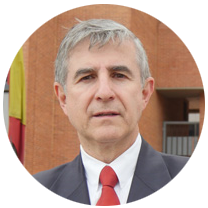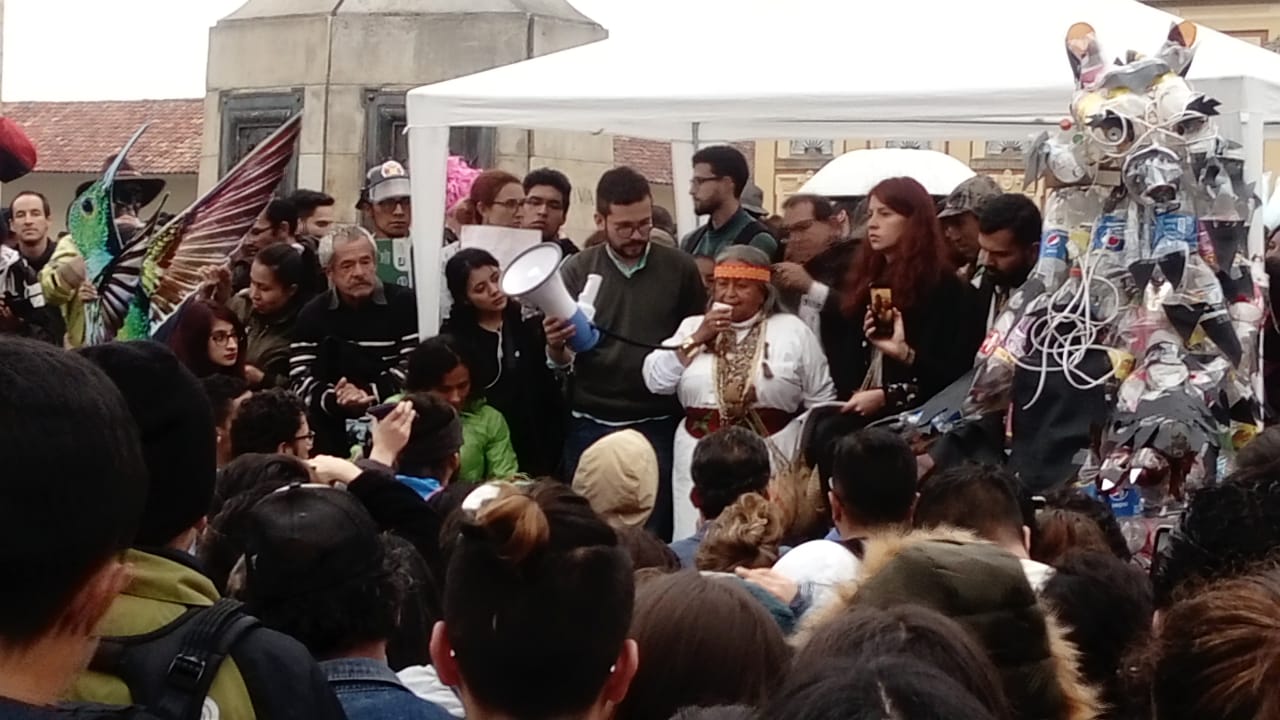 Mike Mackenna introduces you to some of the key members of new Mayor Enrique Peñalosa’s cabinet
Mike Mackenna introduces you to some of the key members of new Mayor Enrique Peñalosa’s cabinet

Miguel Uribe Turbay
Government Secretary
Liberal Party city councilman from 2011-15,
Grandson of 1978-82 President Julio César Turbay.
Praise: Out of a total of 47 city council representatives, Turbay was one of only 13 to finish their term with an approval rating higher than 50 percent.
Criticisms: The 29-year-old’s one term in the city council raises doubts that he is qualified to be second-in-command of Bogotá. Some wonder if he got the job due to his closeness to Vice President Germán Vargas Lleras, a Peñalosa-backer. |

Daniel Mejía
Secretary of Security
Currently a professor of Economics at Los Andes University.
Worked for the Colombian National Bank.
Recognised by Fedesarollo, the Centre for Social and Economic Investigation, as the country’s best economist under 40 in 2015. Mejía was awarded the prestigious Juan Luis Londoño prize, presented every two years, for his research on the relationship between crime and economics.
Praise: Highly knowledgeable in public security.
Criticisms: Has no experience in such a high-profile position. |

María Victoria Angulo
Secretary of Education
Currently the Director of the Businesspeople for Education Foundation.
Sub-Director of Promotion of Higher Education at the National Ministry of Education from 2004-2011.
Worked at the Bogotá Treasury under Mayor Antanas Mockus during his second term between 2001 and 2003.
Praise: Extensive experience in educational leadership.
Criticisms: A believer in Peñalosa’s privately-owned state schools model. While some claim this has improved the quality of public education, others worry it has also increased inequality in education. |

Luis Gonzalo Morales
Health Secretary
Currently Director of Risk Management and Pensions at the National Ministry of Health.
Secretary of Health in the last year of Peñalosa’s first term as Mayor (1997-2000).
Praise: Helped first Peñalosa administration add 450,000 people to the public health rolls, achieving 100% coverage in subsidised health care.
Criticisms: Led the effort to “fuse” public hospitals which resulted in closures. Some say this led to the deterioration of working conditions. |

Beatriz Arbeláez
Secretary of the Treasury
Currently Financial Vice President of Bancoldex, the state industrial-development bank.
Secretary of the Treasury between 2010 and 2011 under Mayor Samuel Moreno (2008-2011), Acting Mayor María Fernando Campo (May-June 2011) and Acting Mayor Clara López (June-Dec 2011).
Praise: Claims to have left her first term in the job under Mayor López in protest of corruption.
Criticisms: Controlled city finances under Moreno, who was suspended and eventually removed from office for mishandling the tender process for city contracts. Considered by some as the most corrupt mayor in city history, Arbeláez claims there was no solid proof of corruption when she took the job. |

Juan Pablo Bocarejo
Secretary of Mobility
Currently Civil Engineering Professor and Director of the Urban and Regional Sustainability Team at Los Andes University.
Has undertaken several studies on public transport in Bogotá and Medellín.
Praise: Has backed much-needed measures to reduce private car use, including congestion charges and tolls for entering Bogotá.
Criticisms: He has no experience working in government. |

Andrés Ortiz
Secretary of Planning
Currently a professor of architecture at Javeriana University and Head of architecture firm Contexto Urbano.
Praise: Has run the most successful architecture firm in Colombia.
Criticisms: His appointment should raise more questions about Peñalosa’s closeness to construction firms, who were among the most generous donors to his campaign. |

María Consuelo Araujo
Secretary of Social Integration
President of mining company Gran Colombia Gold from 2014 to 2015 and CEO from 2010 to 2014.
Minister of Culture from 2002 to 2006 and later Minister of Foreign Affairs under President Álvaro Uribe in 2006 and 2007.
Director of the Institute of Recreation and Sport under Mayor Mockus.
Praise: Long career in public service on different sides of the political spectrum.
Criticisms: Father and brother have been investigated, and her brother sentenced to prison for illegal association with paramilitaries. Her appointment provoked a profane reaction mistakenly sent from a Colombian diplomatic Twitter account, which roughly translates to “Are you fucking kidding me?” An apology was later issued. |

Yesid Lancheros
Press Secretary
Editor-in-chief of El Tiempo webpage.
12 years in total as an El Tiempo journalist.
Praise: His closeness to the country’s most-read newspaper will help Peñalosa build good relations with the press.
Criticisms: Outgoing mayor Gustavo Petro accused Lancheros, a fierce critic of Petro, of making false accusations against the Petro administration. |
Analysis: What to make of these appointments?
For some, Peñalosa’s choice to appoint Miguel Uribe as Secretary of Government has undermined his own claims to “do the best job possible” and “govern without politics.” Arguably, Uribe’s four year term in office does not reasonably constitute enough experience to help the newly elected Mayor do ‘the best job possible’. With popularity in the polls, Uribe’s presidential heritage and connection to the Vice President collectively do little to legitimise claims the new Mayor is ‘governing without politics’. Additionally, his decision to retain a cousin and friend as “super consultants” have eroded his promise of a meritocratic and technocratic government. La Silla Vacia claims they will not receive a salary. But while they are well-qualified to work in government, it looks much more like nepotism and cronyism, and less like meritocracy.
Those who, like Peñalosa, believe that involving the private sector in public services will lead to better governance and better quality, have plenty to applaud. Those who are fierce opponents of Petro are also happy. But for those who worry the mayor wants to privatise and streamline public services, while blindly undoing all of Petro’s initiatives – despite their merits – have plenty to criticise.
By Mike Mackenna
 Mike Mackenna introduces you to some of the key members of new Mayor Enrique Peñalosa’s cabinet
Mike Mackenna introduces you to some of the key members of new Mayor Enrique Peñalosa’s cabinet













